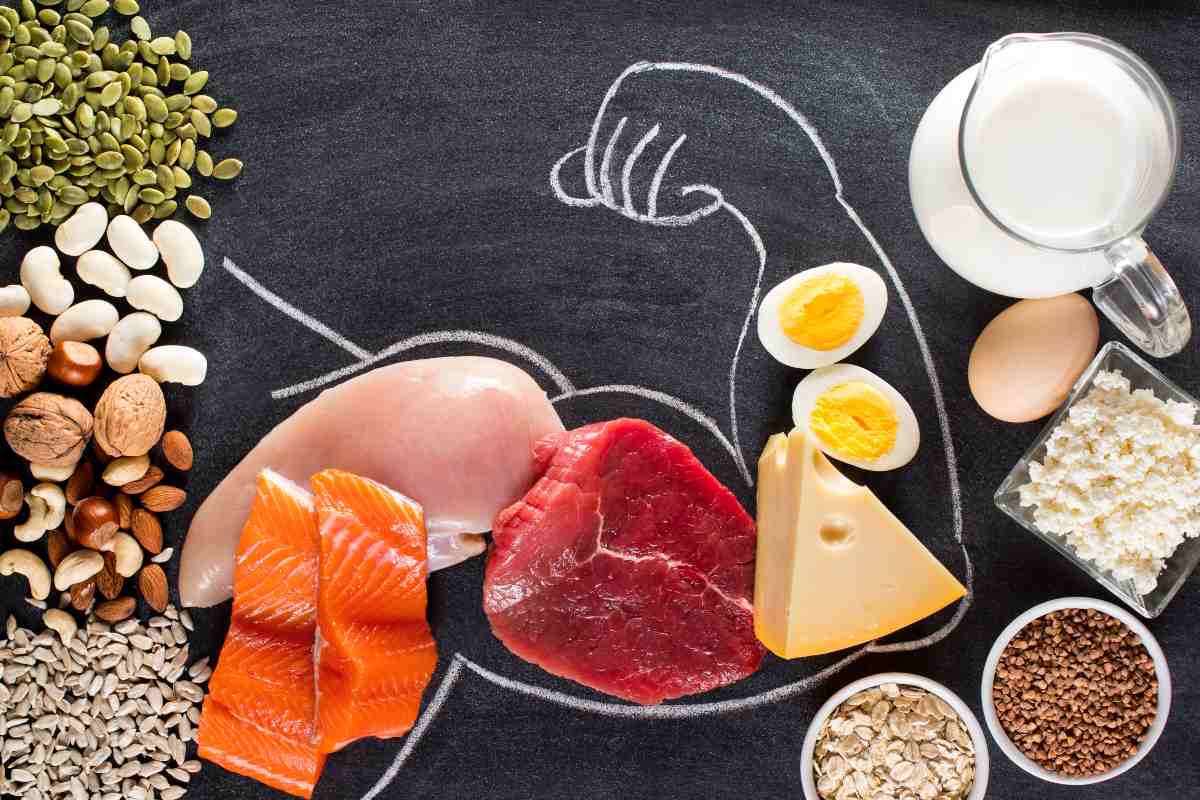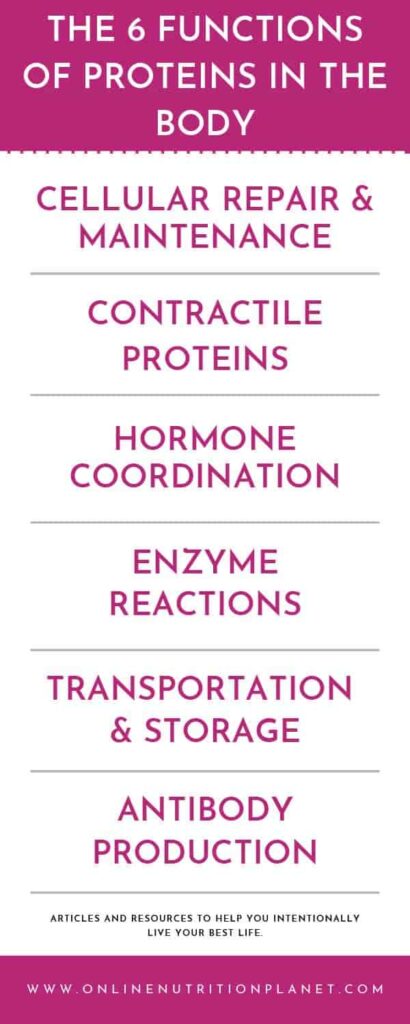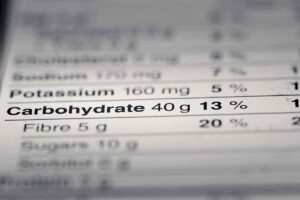In this article, we’ve featured the 6 functions of protein in the body. Continue reading to learn more.
Folks are always talking about how important it is to eat a well-balanced diet that includes an assortment of carbs, fats, sugars, and proteins. We’ve all heard about meat being a great source of protein, but what exactly does that mean? And moreover, what do these proteins do for our body?
There are six functions of proteins in the body including repair and maintenance, muscle contraction, hormone production, enzyme reactions, molecule transportation, and antibody formation. Each function is important in its own way, and a balanced diet of proteins will help to maintain each of these vital operations.
The word protein can be misleading since it is seemingly used so broadly. We’re going to take you on a closer look on what exactly a protein is and the different ways these proteins help to keep us operating steadily and healthily through life.
Table of Contents
What Is a Protein?
People like to say that certain foods are great sources of protein. We hear this growing up and then just accept it through life. But those adults stop short of really explaining what it means for something to be a good source of protein.
Proteins are large molecules made up of hundreds of thousands of smaller amino acids attached to each other in one long microscopic “chain.” They serve vital purposes in our bodies and perform most of the work related to cellular structure, function, and regulation.
There are twenty known amino acids that can combine in a variety of ways to create the specific and unique structural makeup of different proteins. The amino acids are coded by three DNA building blocks called nucleotides. All these miniscule arrangements sequence together to create different proteins that may serve different purposes in our bodies.
Why Is Protein So Important?
Proteins are considered “macronutrients,” meaning that we need to ingest a sizable amount every day to maintain healthy bodies and cells. Our bodies make use of the protein we ingest in six different key functions. Protein is not stored in the body though. It is continually used for these processes.
The ongoing use of protein for everyday life processes is why it is important to consume protein every day. They are essential building blocks of our entire body, and you need the amino acids from consumed protein to make them.
As folks pay more and more attention to their diets, they should also take care to ensure they are eating enough protein everyday. Many people count their calories and sugar, but in order to maintain many of your body’s essential healthy functions, you need to consume a fair amount of protein.
How Much Protein Do We Need Daily?
A healthy diet is important for everyone, but it is also personal to everyone. The daily intake of calories, sugars, and proteins will depend quite a bit on your lifestyle. For instance, a professional athlete will eat a drastically different amount of protein than a person leading a sedentary lifestyle.
“The Recommended Dietary Allowance (RDA) for protein is 0.8 grams of protein per kilogram of body weight.” However, the RDA is effectively the minimum to maintain bodily functions and does not account for your specific lifestyle. Many nutritional scientists have pointed out that this number will be insufficient for an active adult.
If you’d like to assess your own daily protein intake in grams based on that RDA number then you should multiply your weight in pounds by 0.36. For a 175 lbs man, this equals 63 grams of protein per day.
Though like we said, the RDA is more like the minimum. The word “recommended” tends to cause confusion, and leads people to believe they are eating too much protein every day.
Nancy Rodriguez, a Professor of Nutritional Science, and 40 other nutrition scientists gathered for a summit in 2019 to study protein. Generally, the consensus was that both the public and professional share a bit of a misunderstanding interpreting the RDA. The scientists released a report from this summit arguing that in general Americans eat too little protein, not too much.
Research from the summit indicates that Americans should strive to eat roughly double the estimated RDA for their weight. According to Rodriguez, this “is a safe and good range to aim for.” That being said, the amount will vary based on your age, sex, and how much physical activity you regularly engage in.
What Are the Six Functions of Proteins?
Proteins come in different shapes, literally, based on those amino acid combinations. And different proteins work to serve different purposes in the body. These different functions include:
- Repair and Maintenance of your cells, tissues, hairs, skin, and more.
- Muscle Contraction for assisting in movement and motor operations.
- Creating hormones that regulate many bodily functions.
- Enzyme reactions that aid in different chemical bodily functions.
- Transporting and storing molecules throughout the body, like oxygen.
- Forming antibodies to fight off infections and prevent disease.
Let’s take a bit of a closer look at each of these six functions and how they work together to keep your body running in tip top shape.
Cellular Repair and Maintenance
Amino acids and proteins are often referred to as the building blocks of your body. This is a helpful metaphor to contextualize and understand one of the main functions of proteins in your body.
Proteins are vital to the development and repair of bodily tissue including both internal features like organs and muscles, and external features like skin, hair, nails, and eyes. At young ages, our bodies are growing and developing these features, which is why children actually may need more protein per pound than an adult.
Once the body is no longer “developing” these features as an adult, the body regularly works to maintain and repair features. A rich protein diet will help to keep your body tissues healthier longer. Some examples of these building blocks proteins include collagen and elastin.
Contractile Proteins
Proteins like actin and myosin are considered contractile proteins. These proteins play a critical role in muscular contraction. Proteins like these lead athletes to engage in high protein diets to try and improve muscular performance.
As we age, our muscles weaken and it becomes even more important to maintain their operations. The building block proteins mentioned earlier will aid in this process, but focusing on some contractile proteins may help keep the muscles stronger in later life.
Hormone Coordination
Certain messenger proteins are considered vital to hormone production and operation in the body. These messenger proteins transmit signals that coordinate different biological processes between different parts of the body.
For instance, insulin is a protein that controls our body’s blood sugar concentration. The insulin coordinates the intake of the sugar glucose into our cells. Without these messenger proteins, certain critical bodily operations may fail to execute properly and result in medical issues.
Enzyme Reactions
Some proteins are considered enzymes. An enzyme is a protein that facilitates a chemical reaction inside the body. These chemical reactions are critical healthy functions that require the enzyme to have a reactive agent in the process.
As an example, pepsin is an enzyme involved in the digestive process. It helps to trigger your stomach to break down food and release those other proteins. So here is a protein working to dig out other proteins!
Transportation and Storage
Some proteins are considered transportation and storage proteins. These proteins effectively gather and store molecules and then transport them to other parts of the body. Hemoglobin is a protein that importantly captures and transports oxygen through the bloodstream.
These transportation and storage proteins are critical to proper health as they bring so many molecules all over the body. Think of them less like building blocks and more like train operators, carrying the different molecules to the correct stops all over the body.
Antibody Production
Antibodies work with your immune system to prevent and stop infections and disease. Proteins form antibodies and then identify and assist in the destruction of foreign substances and infections. White blood cells are the real heroes of defeating infections, but antibodies are sort of like the first line of defense.
The antibodies identify the infection and sound the call for the immune system to fight it off. Proteins such as immunoglobulin G may work to surround infections and contain it until the immune system and white blood cells can fight it off.
What Is Not a Function of Protein?
So proteins do a lot of good for our bodies. They are valuable and critical resources to developing and repairing cells, muscular action, antibody and hormone responses, enzyme reactions, and transportation of molecules. But there is one thing that proteins are not responsible for, that some people often miscredit them with.
Providing the body with energy is not one of the main functions of protein. Your body primarily derives energy from carbohydrates and sugar. However, if the energy derived from other nutrients is insufficient, the body may convert proteins into energy.
The six functions of proteins outlined above are the critical operations of protein, whereas your body naturally will get energy from other nutrients. But the body is resilient and flexible and can in fact get energy from protein, but you shouldn’t rely on or aim for this. The body’s natural state involves burning carbohydrates and sugars for energy.
If you don’t eat enough carbs, maybe because you are on a low carb diet, then it is possible your body will turn to those proteins for energy. However, if you are eating enough carbs, and you have more than enough protein for those six essential functions, your body will seek to put that protein to use elsewhere.
If the protein is not needed for the primary functions or for energy consumption, then it will be converted and absorbed into fat cells. This is where many people start to get fearful of eating too much protein. They are concerned about the extra protein making them gain weight.
Most nutritional scientists would agree that a balanced diet combined with some regular physical activity will negate this fear. If you live an entirely sedentary lifestyle and overeat proteins, then it could come to pass. But with modest activity, the body will find good use for those proteins before making them fat.
Does the Body Need All This Protein?
Your body absolutely needs these proteins to maintain a healthy life. The six functions we’ve described above maintain so many essential operations that you will quickly notice a lack of protein affecting your well being.
Generally speaking, you shouldn’t concern yourself with eating too much protein. But if you are concerned about your protein intake, talk to a doctor or nutrition expert, and they can help set you up on a reliable plan to keep all internal operations firing away well into later life.





